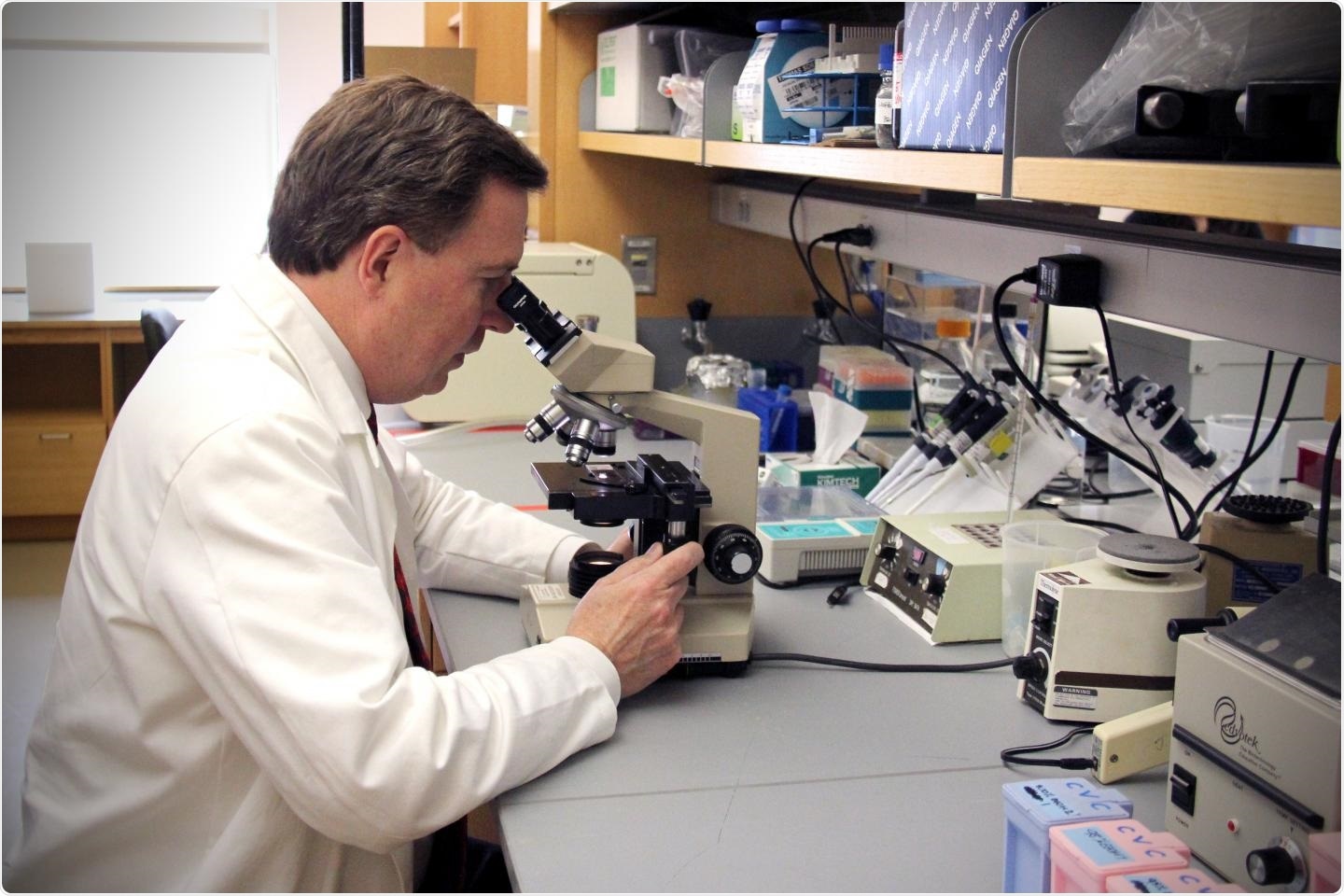Prolactin is a hormone that has long been thought to play an important role in breast development and growth, as well as milk production during pregnancy.

Charles Clevenger, MD, PhD. Image Credit: Virginia Commonwealth University Massey Cancer Center.
However, a pair of recent research works performed by researchers from VCU Massey Cancer Center found clear evidence that prolactin is also a significant contributor to the growth of breast cancer and that the hormone could help in the development of targeted drugs to combat various forms of the disease.
Hormones feature receptor proteins on their cell surface that receive and transmit biological signals as well as regulate cell activity.
Charles Clevenger, MD, Ph.D., a VCU Massey Cancer Center researcher, and his lab identified a modified, new version of the prolactin receptor known as the human prolactin receptor intermediate isoform (hPRLrI) that specifically induces breast cancer. The findings of the study have been published in npj Breast Cancer.
The researchers discovered that this altered version of the prolactin receptor interacted with other versions of the receptor to convert benign breast cells into malignant ones. They also found that the occurrence of hPRLrI in breast cancer cells was linked to triple-negative breast cancer, a fast rate of cell reproduction, and detrimental outcomes.
This research challenges the dogma that prolactin only functions in milk production and highlights the unique discovery that the hormone can contribute to breast cancer. By understanding how the prolactin receptor correlates to breast cancer, novel therapeutic and prognostic agents can be developed to effectively treat the disease.”
Charles Clevenger, Associate Director for Precision Oncology, Virginia Commonwealth University
Clevenger is currently a Carolyn Wingate Hyde Endowed Chair of Cancer Research, a member of VCU Massey’s Cancer Biology research program, and the chair of the VCU School of Medicine’s Department of Pathology.
According to Clevenger, these results reinforce the claim that potential methods in drug design might have to particularly target hPRLrI, which may eventually guide advanced diagnostic applications for breast cancer.
Clevenger’s lab used an HDAC6 inhibitor, a compound that inhibits a protein related to prolactin, to significantly suppress tumor development in preclinical models of ER-positive breast cancer in related research published in Endocrinology and featured prominently on the journal’s website as the Featured Article for a week.
Clevenger has previously slowed the development of breast cancer successfully in the lab by deactivating Stat5—the genetic pathway necessary for prolactin production. As part of the new study, the team discovered that Stat5’s prolactin-regulating activity is based on both the enzyme histone deacetylase-6 (HDAC6) and the gene HMGN2.
They also found that the estrogen receptor (ER), a hormone widely thought to affect breast cancer growth, interacted more with Stat5 almost exclusively at sites where HMGN2 and HDAC6 were also present.
This means that the prolactin and estrogen receptors can function together to initiate the growth of breast cancer by activating Stat5. The use of an HDAC6 inhibitor in the treatment of ER-positive breast cancer cells significantly slowed tumor development.
Global analysis of gene expression again revealed that prolactin is closely associated with breast cancer growth and could be subdued by treatment with an HDAC6 inhibitor.”
Charles Clevenger, Associate Director, Precision Oncology, Virginia Commonwealth University
Clevenger has devoted a considerable part of his scientific career to determining how prolactin can play a role in the development and progression of breast tumors. He intends to research and improve breast cancer drugs using prolactin as a primary target in future trials.
Source:
Journal reference:
Grible, J. M., et al. (2021) The human intermediate prolactin receptor is a mammary proto-oncogene. npj Breast Cancer. doi.org/10.1038/s41523-021-00243-7.